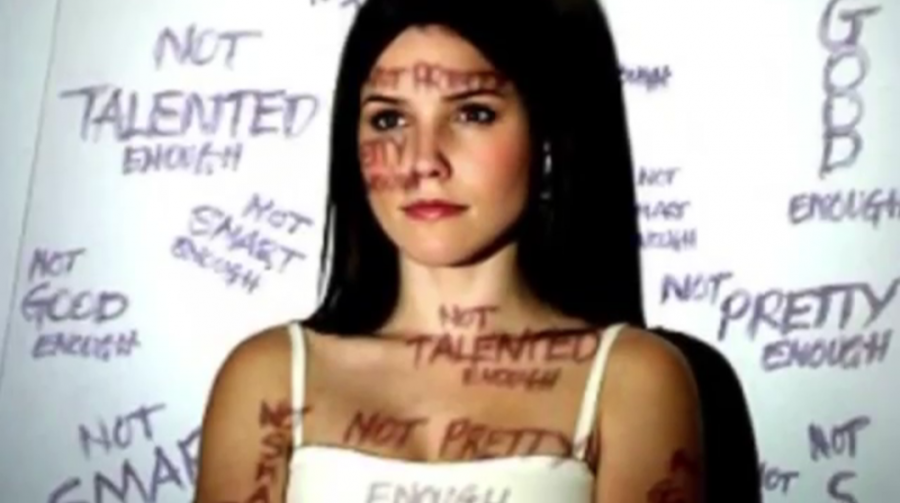UA Body Smart will air “America the Beautiful 3” at Gallagher Theater today. A documentary geared toward examining our culture’s preoccupation with sex, “America the Beautiful 3” digs into popular culture to demonstrate the long-lasting and harmful effects of American media consumption.
As part of National Eating Disorder Awareness Week, the Body Smart Initiative will examine the premature sexualization of America’s youth and the microcosm and macrocosm of its lasting distress on America’s psyche.
A product of the Body Smart Initiative, the Body Smart Fair will encompass a myriad of interactive and informative activities on the UA Mall from 10 a.m.-2 p.m., as well as the showing of “America the Beautiful 3” from 6-8:30 p.m.
In an attempt to address self-esteem and body image issues, “Body Smart Day” works to articulate the ramifications that come with a rising climate of high sex culture.
“We want to enhance body image, but we’re also trying to raise awareness,” said Gale Welter Coleman, a nutritionist and coordinator of nutrition services for Campus Health Service.
In a culture steeped in media bombardment, the underlying themes of many media industries are pervasive, Welter Coleman said.
“Things like little kid beauty pageants, advertising, celebrity hip-hop culture and pornography all [contribute] to the sexualization of our culture,” Welter Coleman said. “The availability of technology to little kids makes it so that young people are capable of entering a very adult world very young. You can suffer physically, mentally and interpersonally because of it.”
According to Darryl Roberts, writer, producer and director of the film, Americans suffer from a lack of healthy sexual identity, which can be attributed to our puritanical roots. For this reason, the national discussion on sexuality and premature sexualization is not an open forum.
“In countries like Europe, Canada and Japan, teenagers have sex as much — and sometimes even more — than American teenagers do,” Roberts said. “But the teens in all these other countries have a much lower rate of sexually transmitted and venereal diseases and teen pregnancies. And we were asking, ‘Why is that?’ Well, especially in Europe, what we’re finding is teenagers have a healthy sense of what sexuality really is.”
While other nations have a lens through which to view and process popular culture, America does not. According to Roberts, much of this can be attributed to our lack of a fundamental framework for healthy sexual identity — and even more to America’s consumerism.
“The tenants of capitalism are destroying American culture,” Roberts said, “because as long as sex sells, you will have corporations and industries willing to do anything to make money. No one is safe.”
The media plays an integral role in shaping young people’s perception of themselves in relation to their “ideal” body images. According to the National Association of Anorexia Nervosa and Associated Disorders, 69 percent of fifth- to 12th-grade girls reported magazine pictures as influences on their ideas of a perfect body shape. However, the same study showed that the figures of women portrayed in the media represent only 5 percent of the population.
“There’s this idea that you’re either sexy or you’re nothing,” Welter Coleman said. “If you don’t feel sexy, then you’re not good enough, and no one is going to love you. If you get that in your head early, then you may [feel the] need to have sex earlier. There’s a certain status about having sex young. People need to realize there’s something insidious here that needs fixing.”
Those at Health Promotion and Preventative Services at Campus Health are hopeful the film will bear a lasting impact on its viewers. Elvin Kibet, events coordinator, Megan Foley, a public health senior, and McGregor Lippincott, a marketing senior, all work as student liaisons and coordinators for the Body Smart Fair.
“When it comes to the media, I don’t think people know or understand what they’re always consuming,” Lippincott said, “nor do they understand the long-term implications of what they’re viewing.”
However, through collaboration and raising awareness, the problems at hand can begin to be remedied.
“The public just needs to be educated on these matters,” Kibet said. “We’re doing that through [the Body Smart Fair] and this movie.”
Through providing a comprehensive perspective of different modes of sexualization, Foley said the film will bring more awareness to the UA.
“The film focuses on our mission to enhance a positive body image and increase self-worth,” Foley said. “It shows that people everywhere are sexualized in one way or another. … That’s how you start to fix these things. I think it’s a significant message for the university.”
_______________
Follow Elise McClain on Twitter.









